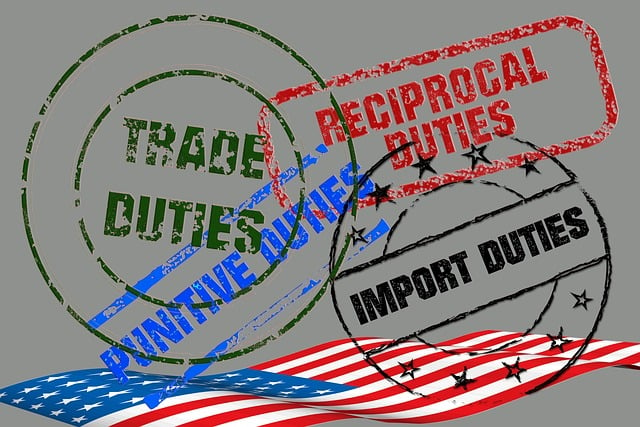Capital Gearing Trust (CGT), the £800m wealth preservation fund, has said the “tariff swoon” in the two months to 8 April was a “good dress rehearsal” for the more prolonged bear market its fund managers believe is around the corner.
While global share prices plunged almost 20% over fears about the impact of Donald Trump’s US trade policies, the investment trust’s net asset value fell by just 2%, proving the value of its defensive, multi-asset portfolio that lead manager Spiller has worked on since 1982, making him the UK’s longest-serving fund manager.
With 39% in inflation-linked bonds and 34% in cash, CGT inevitably lagged the ensuing rebound that began after Trump announced a pause in his tariffs rollout sending markets on both sides of the Atlantic to record highs. But interim results today showed it delivered a 3.4% investment return in the half year to 30 September. That took the one-year growth in NAV to 5.1%, ahead of inflation of 3.8%, meaning shareholders’ capital grew 1.3% in real terms.
Over five years the portfolio has returned 20%, well below the FTSE All-Share’s 73% but with far less volatility. It also trails rivals Personal Assets (PNL) and Ruffer (RICA) which have both delivered 28%.
Looming fiscal crisis
Most of the latest half-year return, 3.2%, came from the 29% held in equities and real estate, “risk assets” which the team reduced to 26% after their bouyant performance underlined the managers’ concerns of over-valuation and excessive speculative behaviour.
Inflation-linked bonds fell 0.6% with US “TIPS” benefiting from forecasts of interest rate cuts but with this gain offset by the weakening dollar. UK “linkers” profited from inflation but were hurt by bond markets falling on predictions of higher interest rates.
Spiller, Alastair Laing, chief executive at CG Asset Management (CGAM), and co-chief investment officer Chris Clothier, said they had a long list of things they worried about. Chief among these is the financial positions of France, the US and UK, any one of which could suffer a fiscal crisis over their high debts, they said.
Bond markets had sold off on these fears, but equity markets had remained upbeat despite US consumers – the backbone of the world’s largest economy – dealing with the imposition of 19% tariffs, the largest since 1933, that would slash their spending power and cut corporate profits.
Then there is the boom in artificial intelligence (AI). CGAM think it unlikely that the anticipated $3trn investment in AI by the internet giants by 2030 will generate sufficient revenue, leading to big write-downs. While that may not be a problem for some of these extraordinary cash generators, CGAM said it would likely be a challenge to private credit markets which have funded the rapid expansion in data centres whose viability could be called into question.
“By some estimates, data centre investment is the only thing keeping US GDP growth in positive territory. Take it away and the US might slip quickly into recession,” the CGT managers said.
Where is equity risk premium?
Yet equity investors had shrugged off these worries with the US S&P 500 trading at 41 times cyclically adjusted price-earnings (CAPE). History suggested real returns after inflation of less than 1% a year from these levels for the next 10 years.
Nor were the “Mag7” tech giants the only examples of extreme valuations, they said, pointing to US supermarket Walmart trading on over 40 times earnings and household goods giant Procter & Gamble on a multiple of 21.
“Where is the equity risk premium – the extra payment for holding a risky asset over safer government debt?” they asked.
Their comments came as the markets continued to wobble on nervousness about AI valuations and also Japan’s debts, which could undermine the carry trade which sees investors borrow cheaply in yen and reinvest elsewhere. The FTSE All-Share fell 1.6% today to 5,124 and is down 3.8% in the past week since it peaked at 5,330 on 12 November.
Fidelity Emerging Markets
Spiller and the CGAM team like to use exchange traded funds (ETFs) to gain their equity exposure, along with investment companies trading below the value of their investments.
Of these, Fidelity Emerging Markets (FEML) was the standout performer, generating a return of over 30% from strong investment performance boosted by a narrowing share price discount.
HICL destruction
After a difficult couple of years, there was a welcome return to form for the infrastructure funds in the portfolio. International Public Partnerships (INPP), 3i Infrastructure (3IN) and HICL Infrastructure (HICL) were the main contributors.
The presence of HICL in the top performers explains why CGAM was so angry with HICL when its share price slid yesterday after it unveiled a plan to merge with sister fund Renewables Infrastructure Group (TRIG). CGAM opposes the £5.3bn deal as “value destructive” and largely of benefit to fund manager InfraRed Capital Partners
Big buybacks
At 2%, CGT’s share price discount is tiny compared to the 20%+ deficits in listed infrastructure and renewables funds, but its zero-discount policy means it was obliged to buy back nearly 1.5m of its shares at a cost of £71.6m in the six-month period.
Karl Sternberg, who replaced Jean Matterson as chair in July, said the company would probably have to renew its buyback authority in the new year such was the pace of its stock purchases. While these shrank CGT’s assets, they ensured the shares remained close to asset value which he said was best for shareholders and the company.
